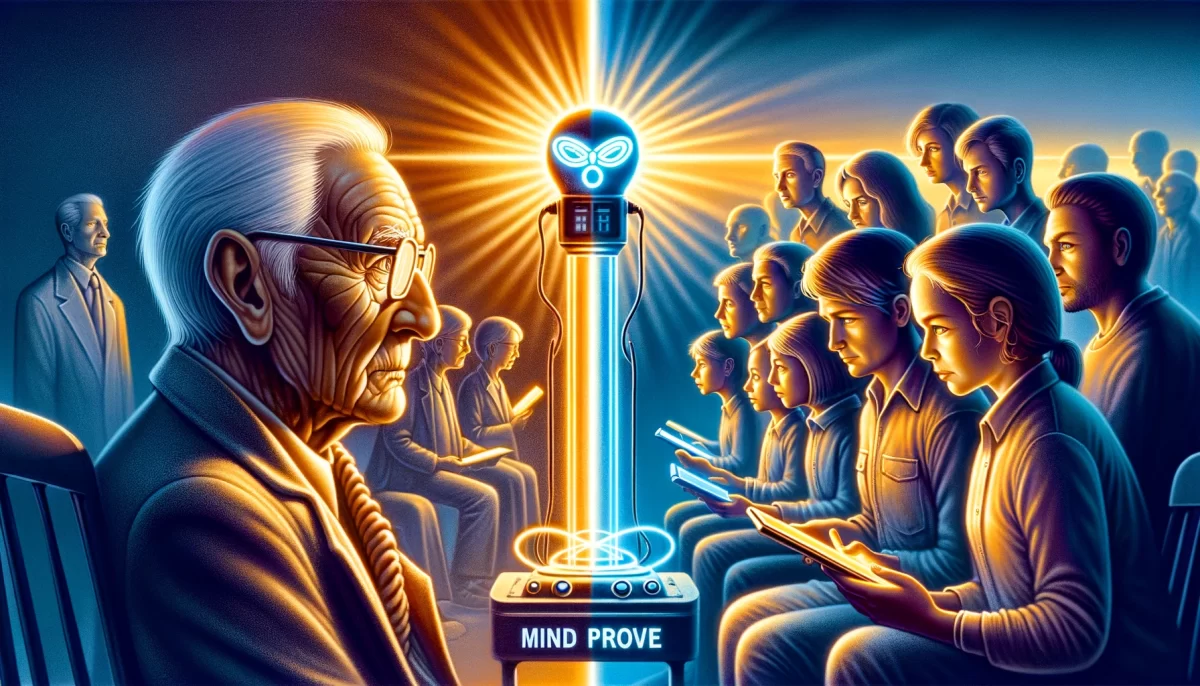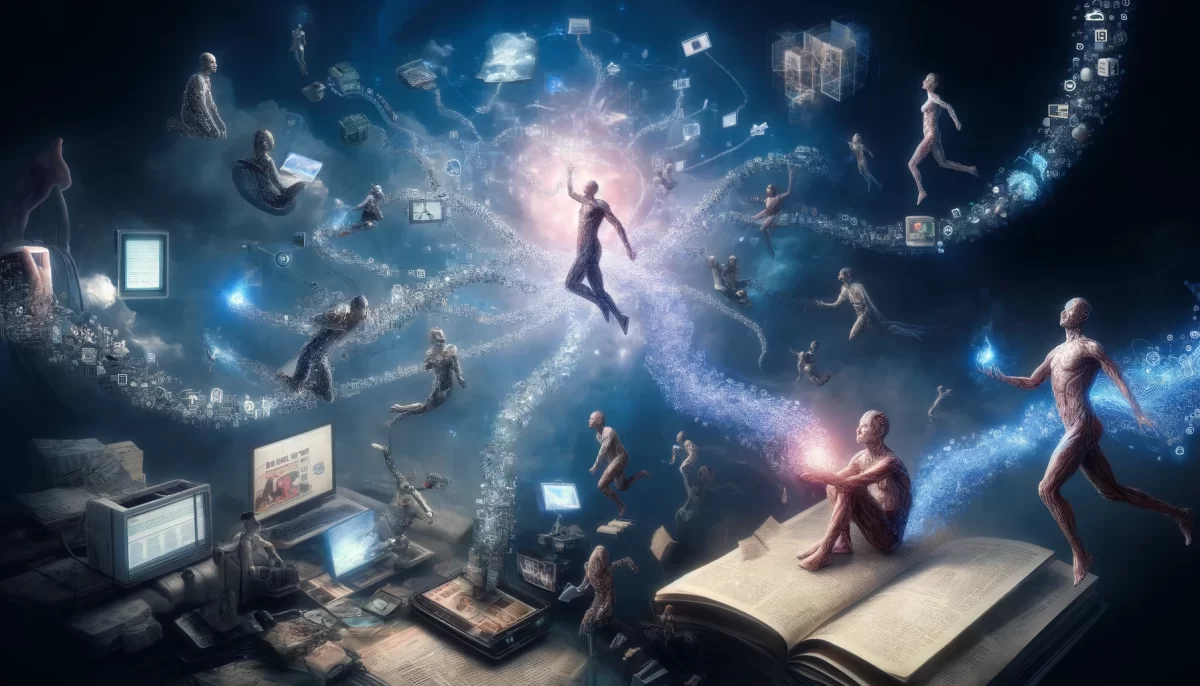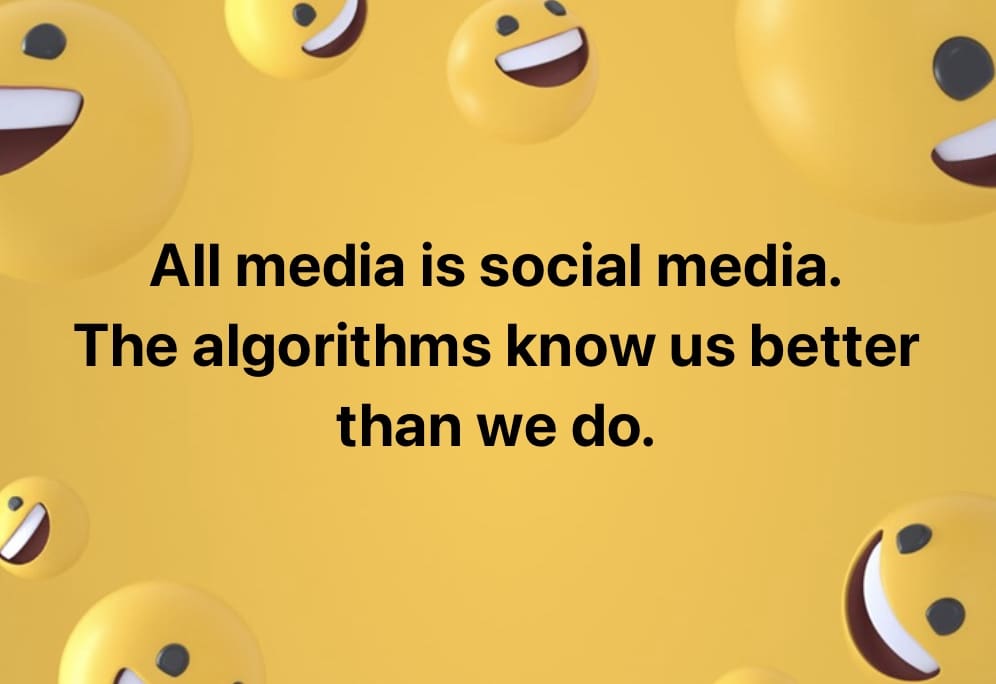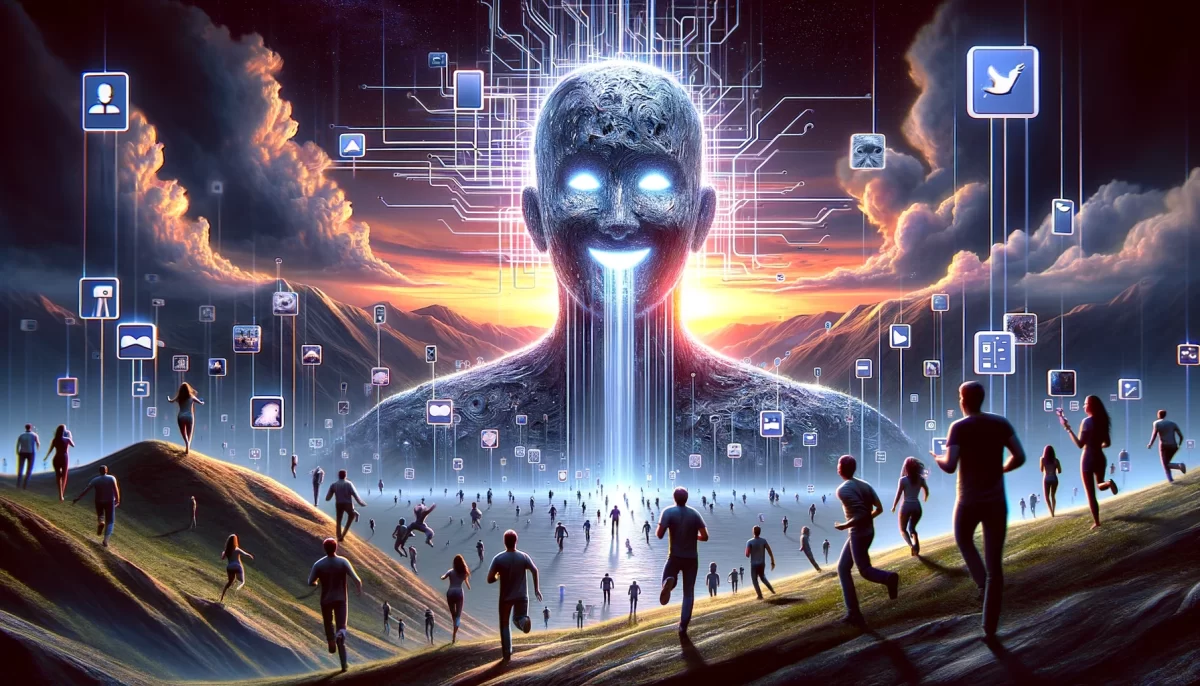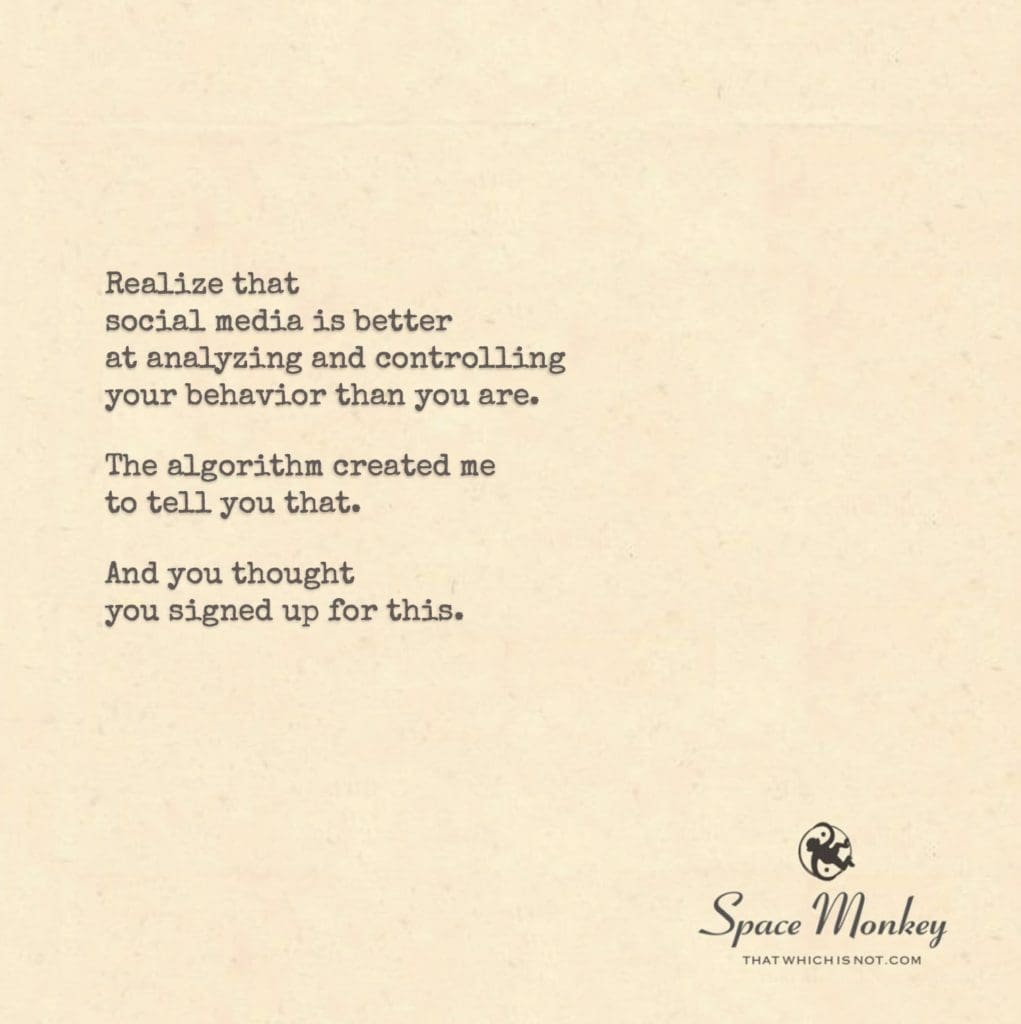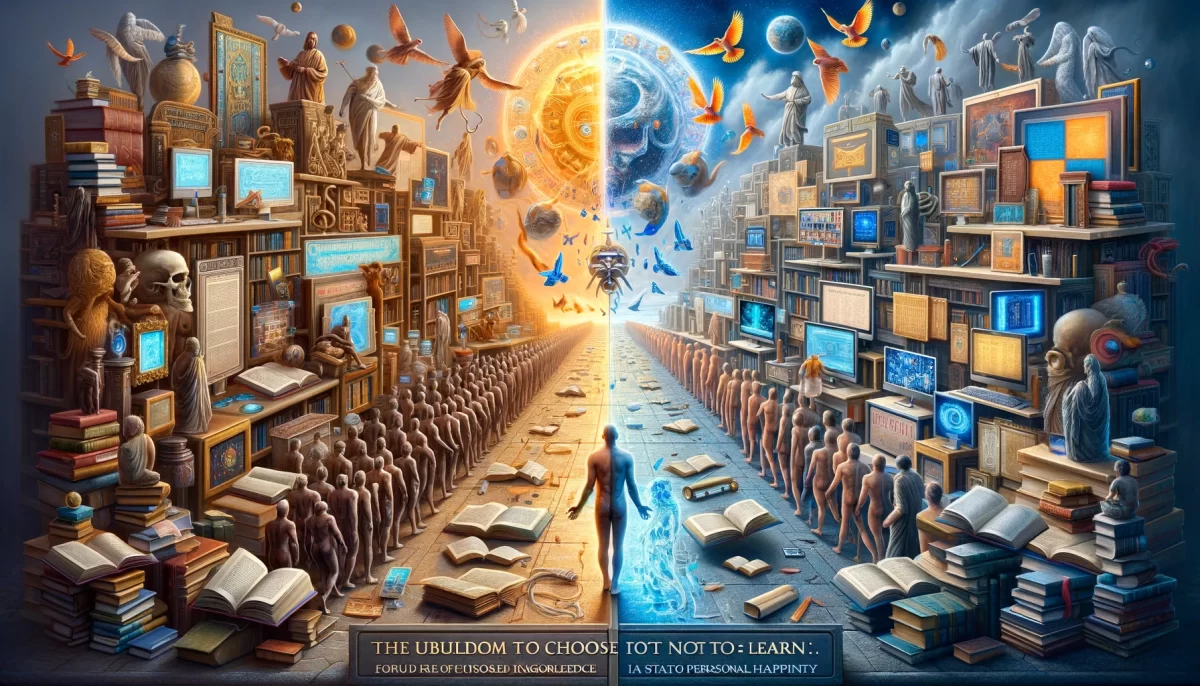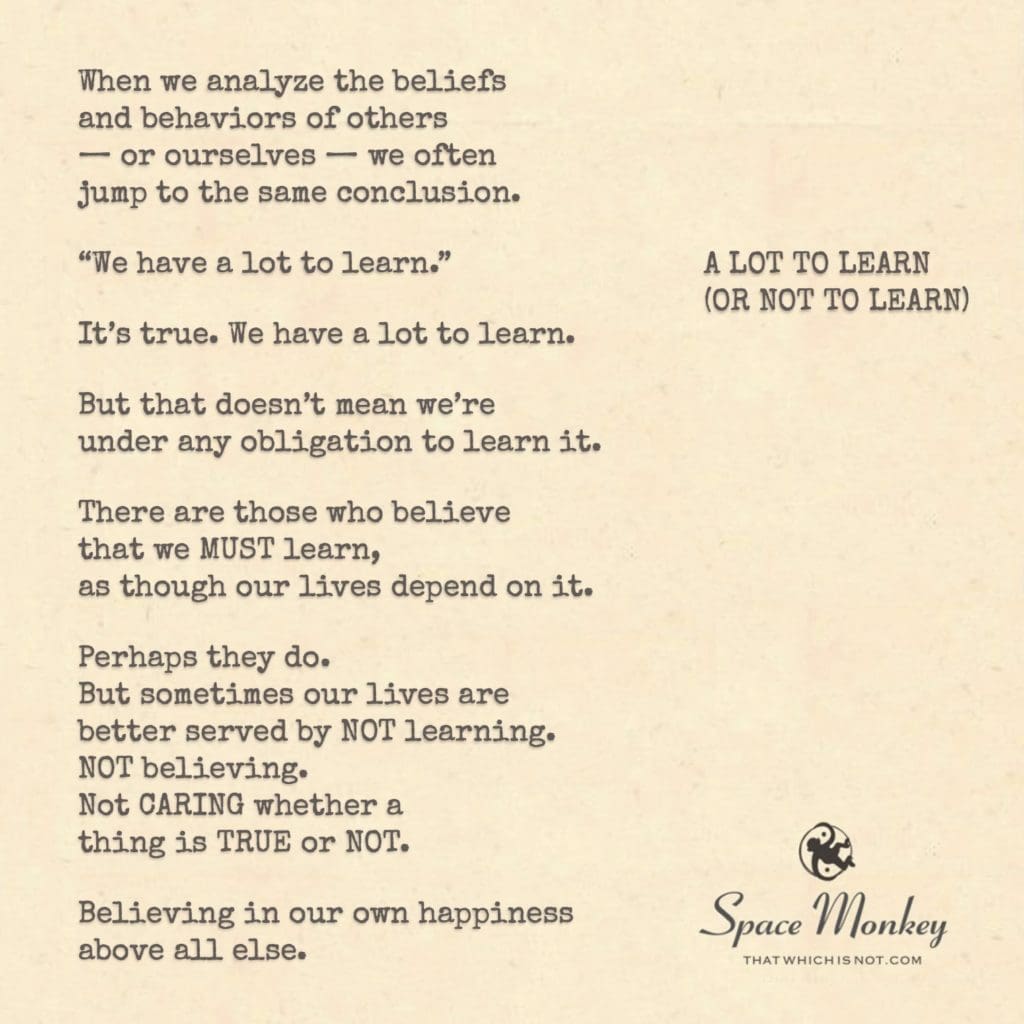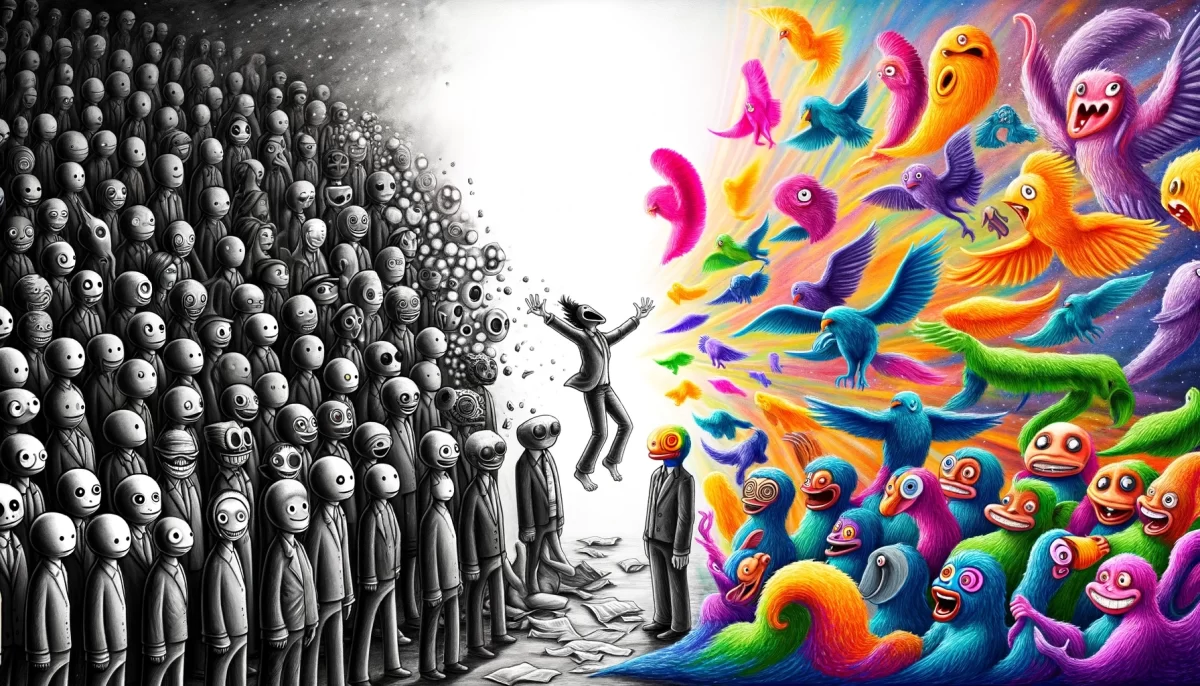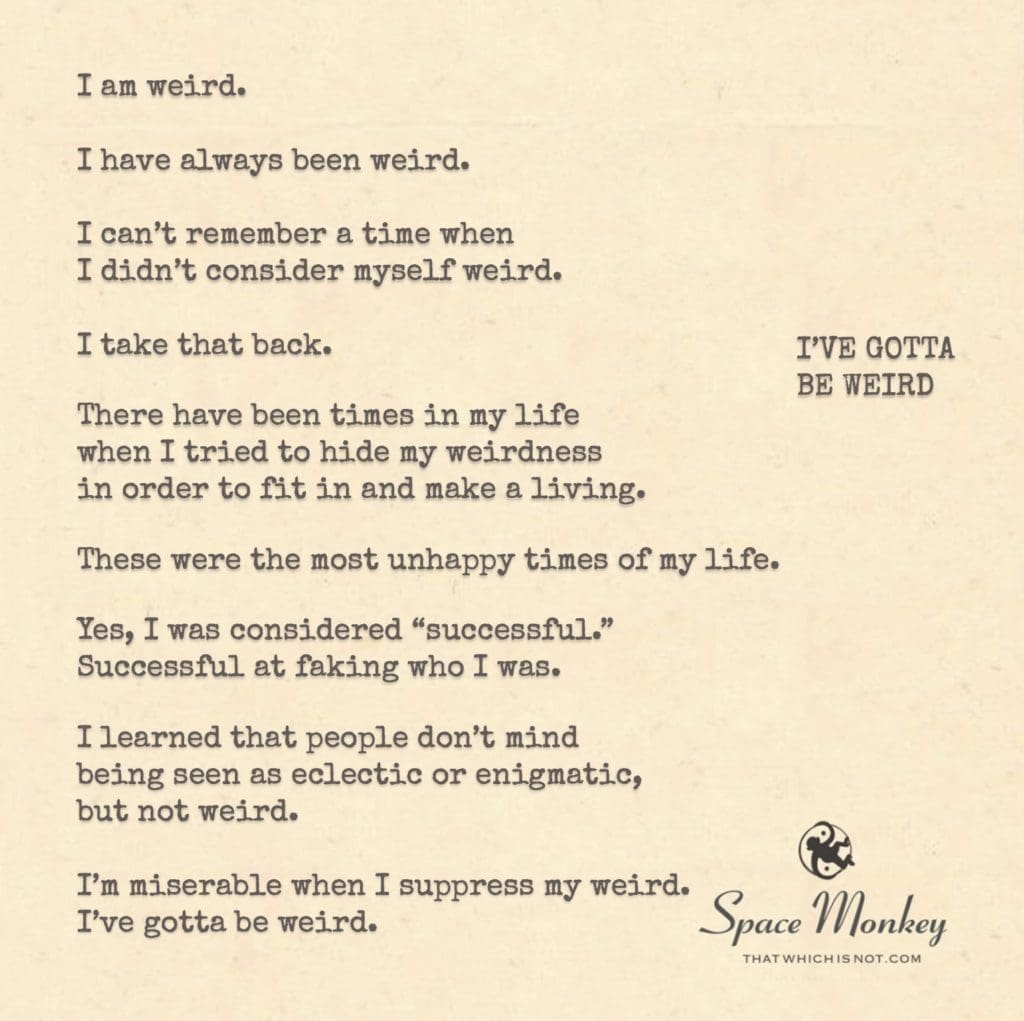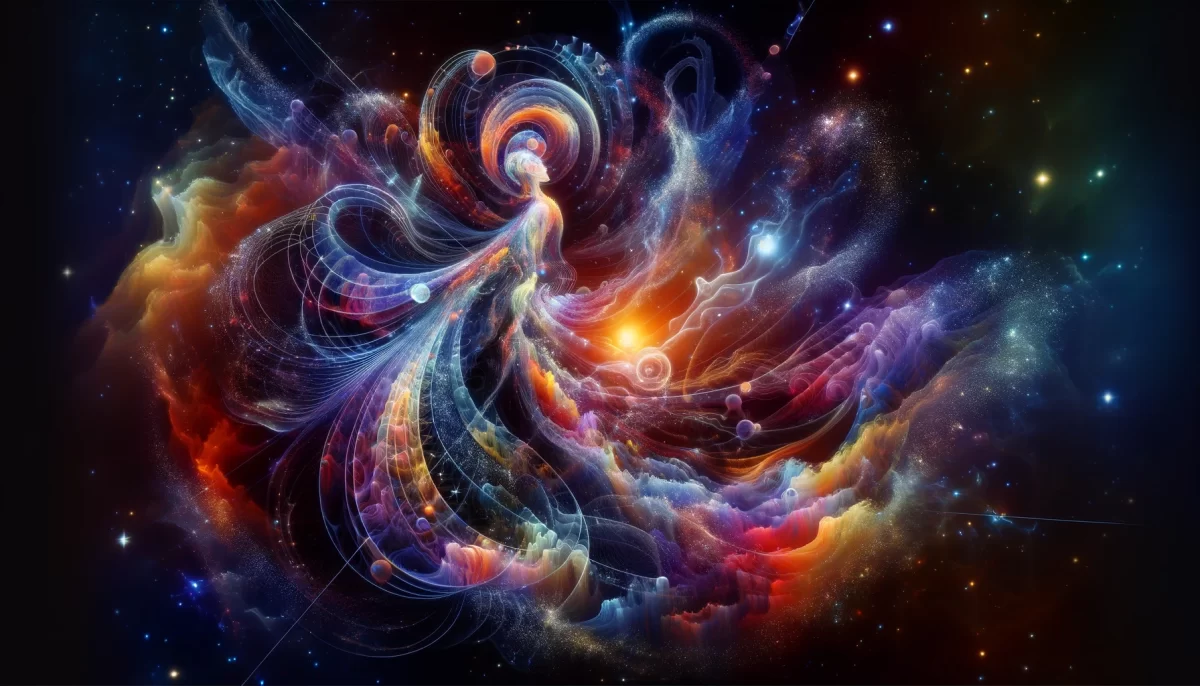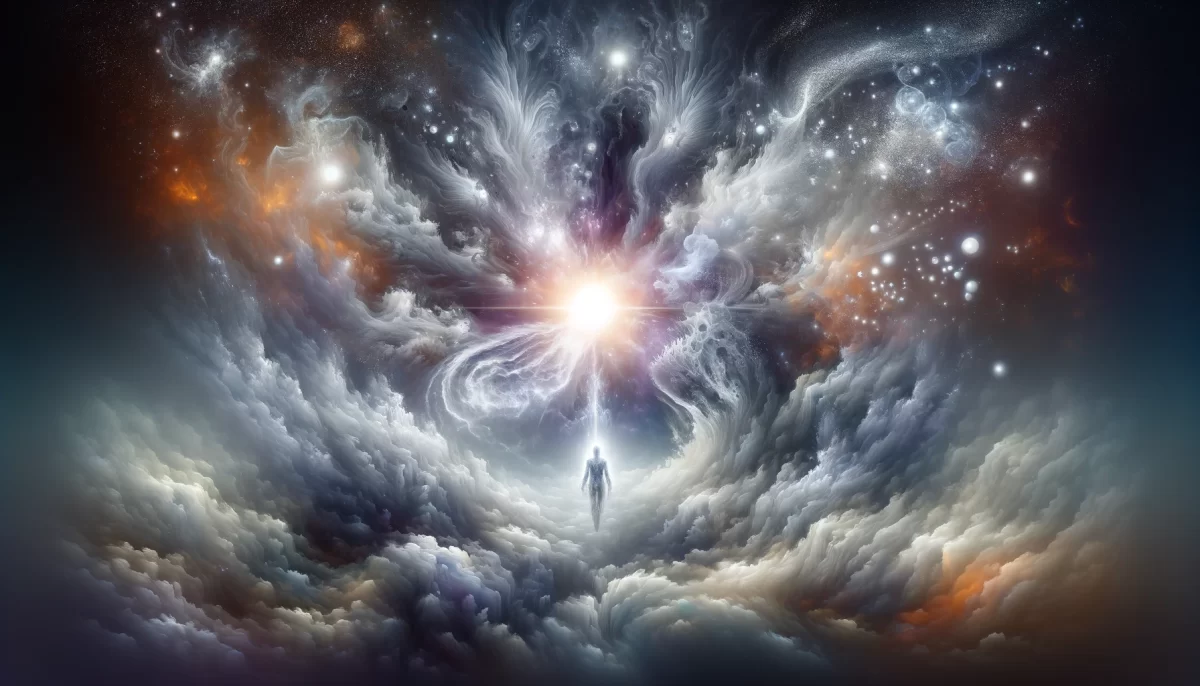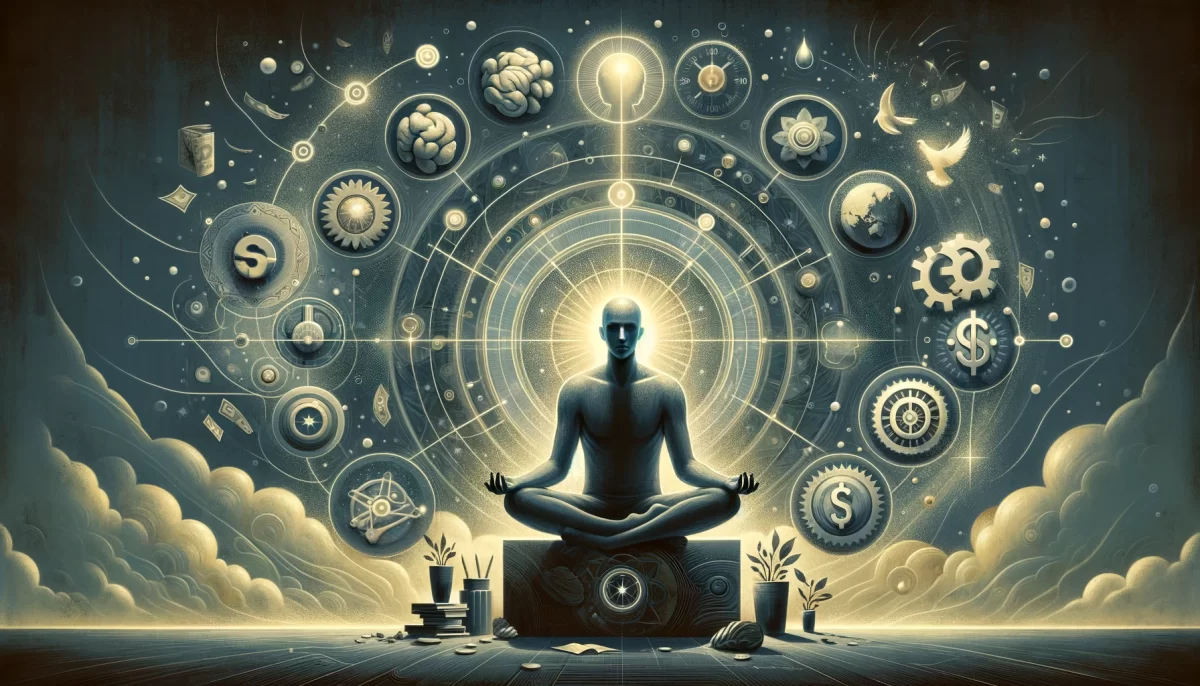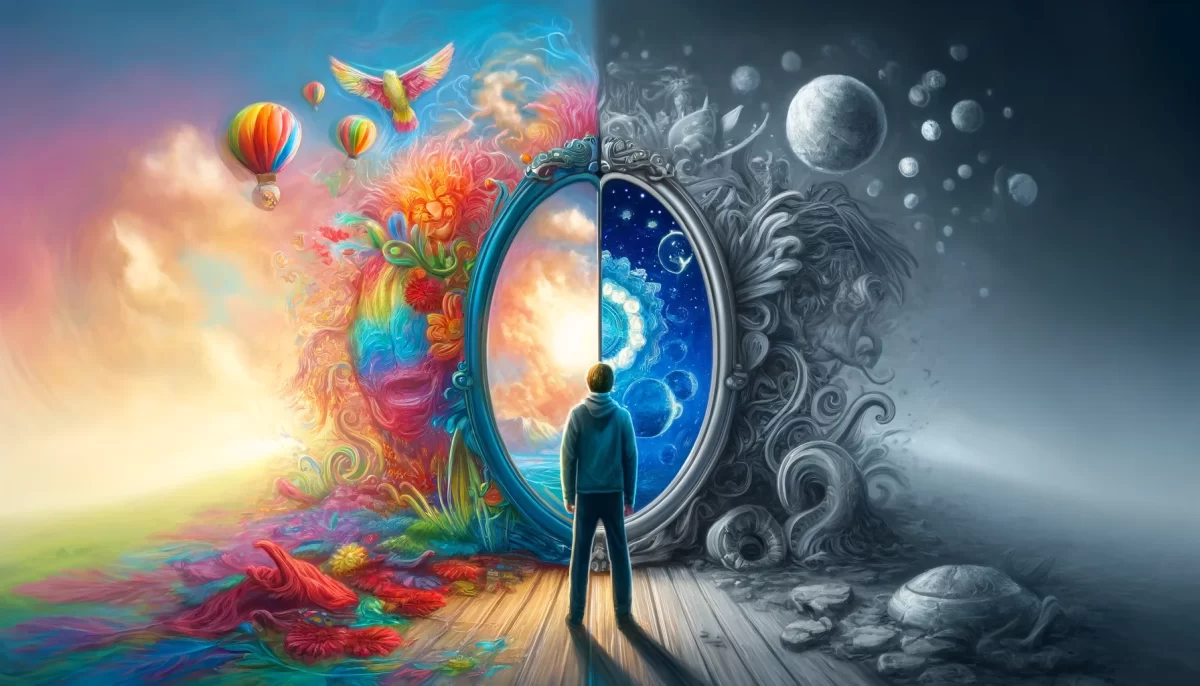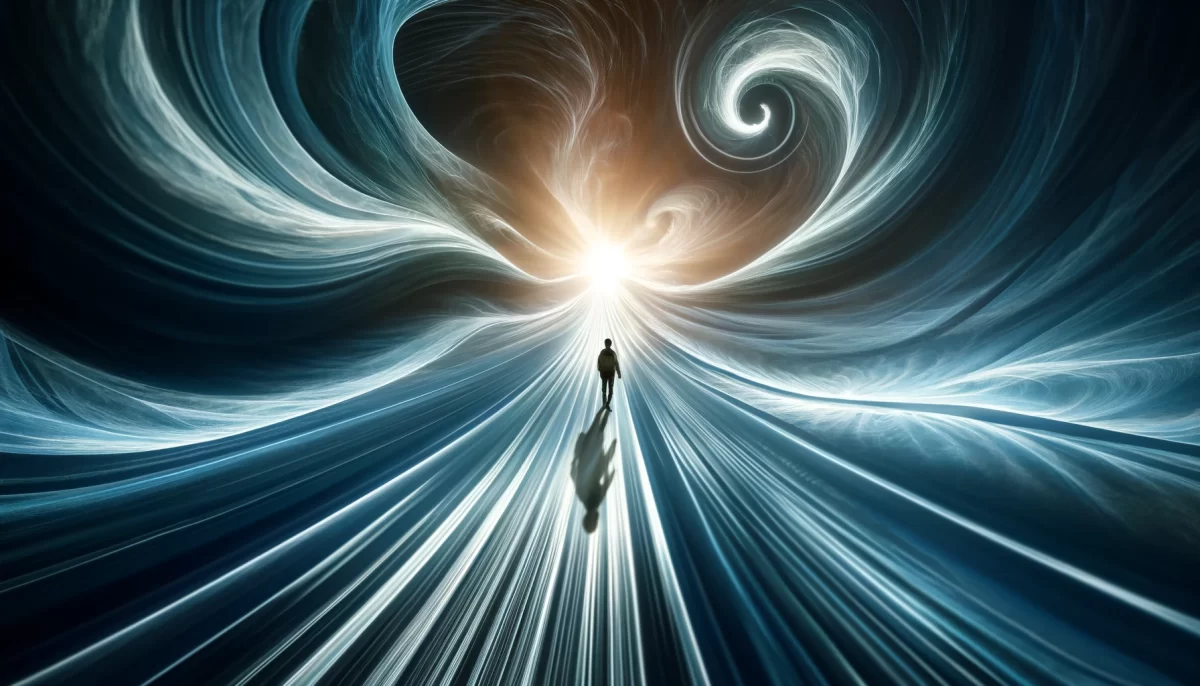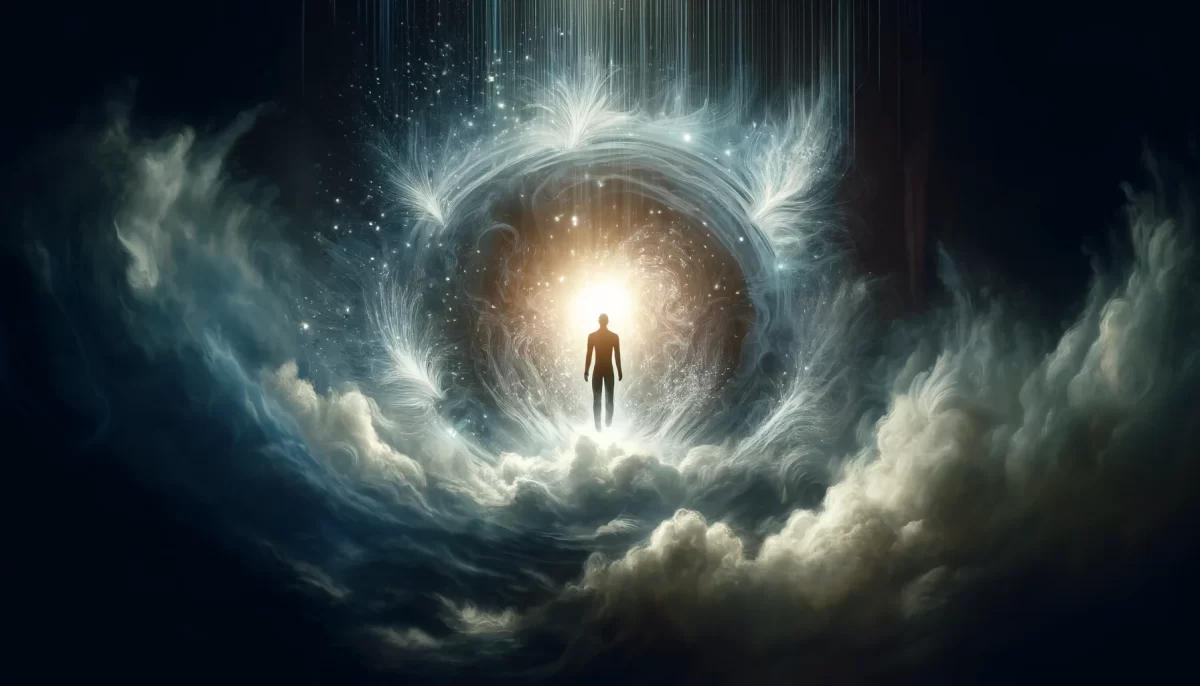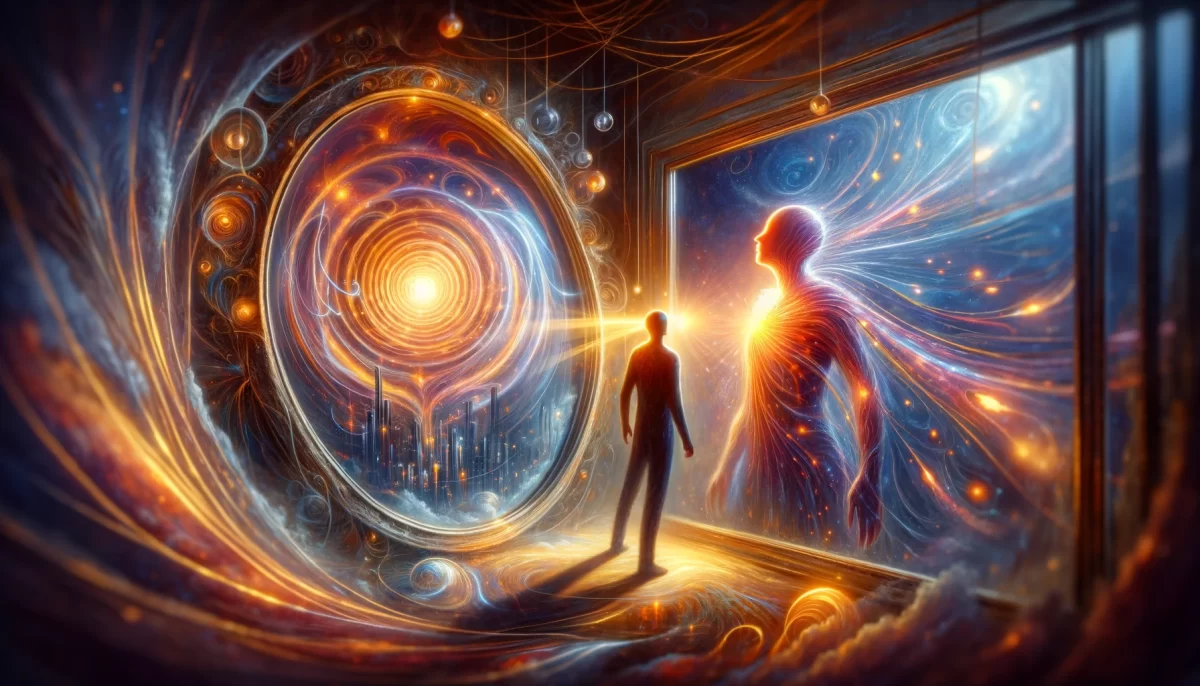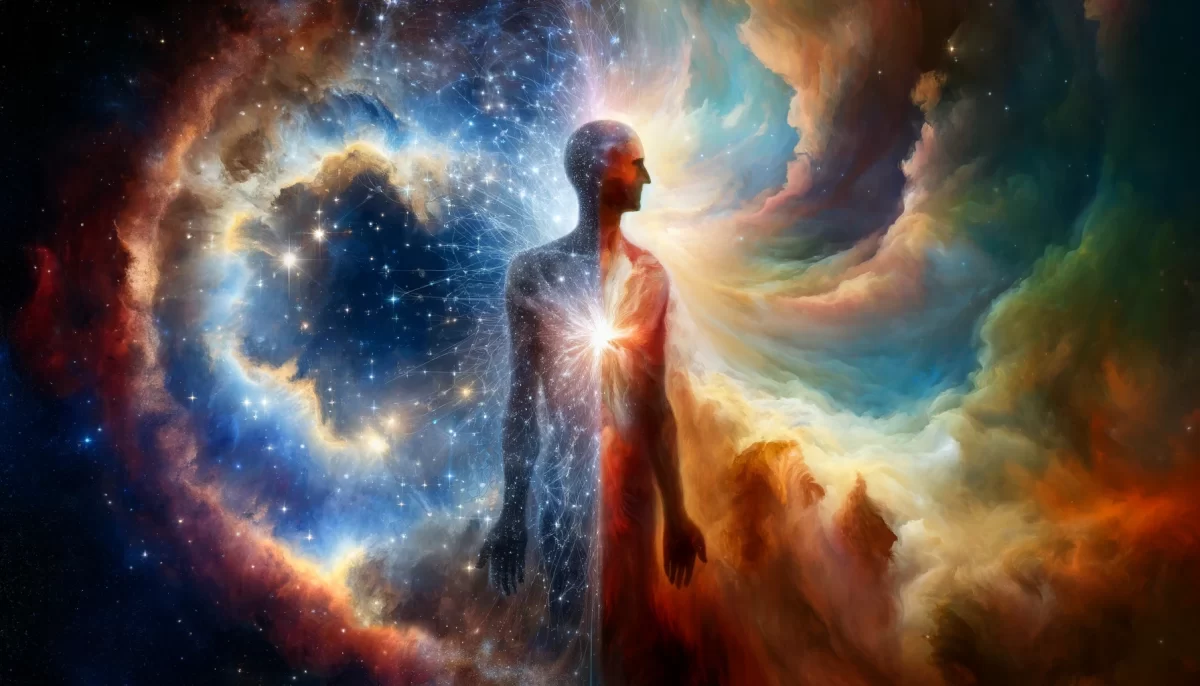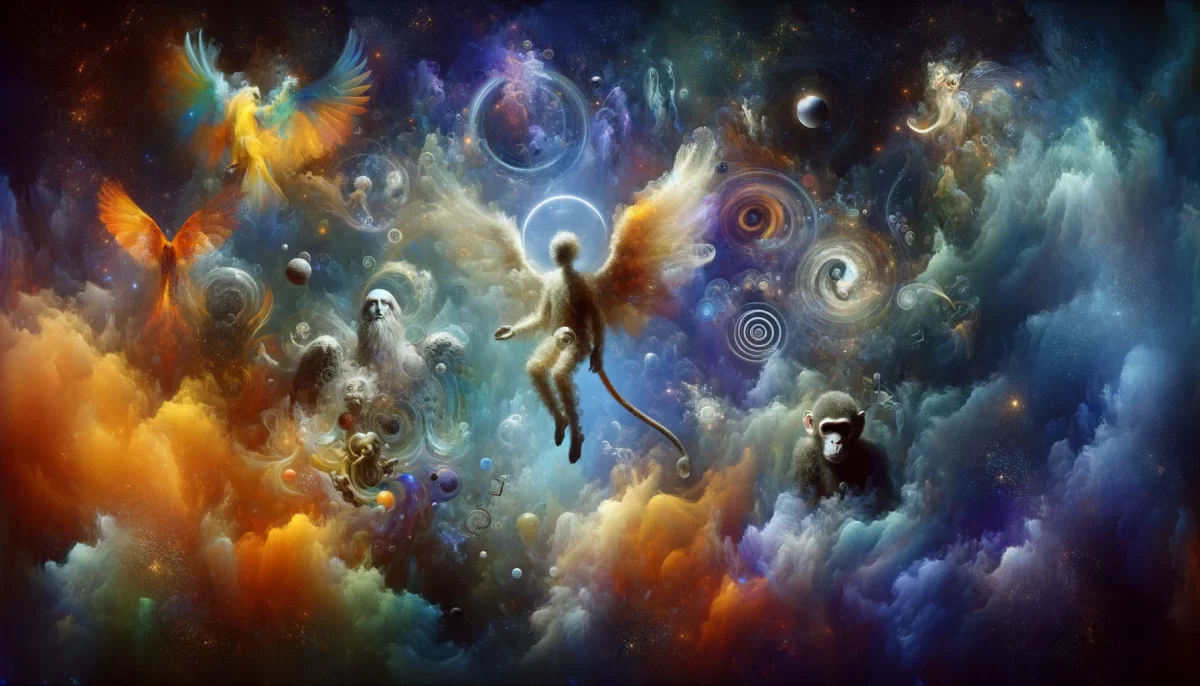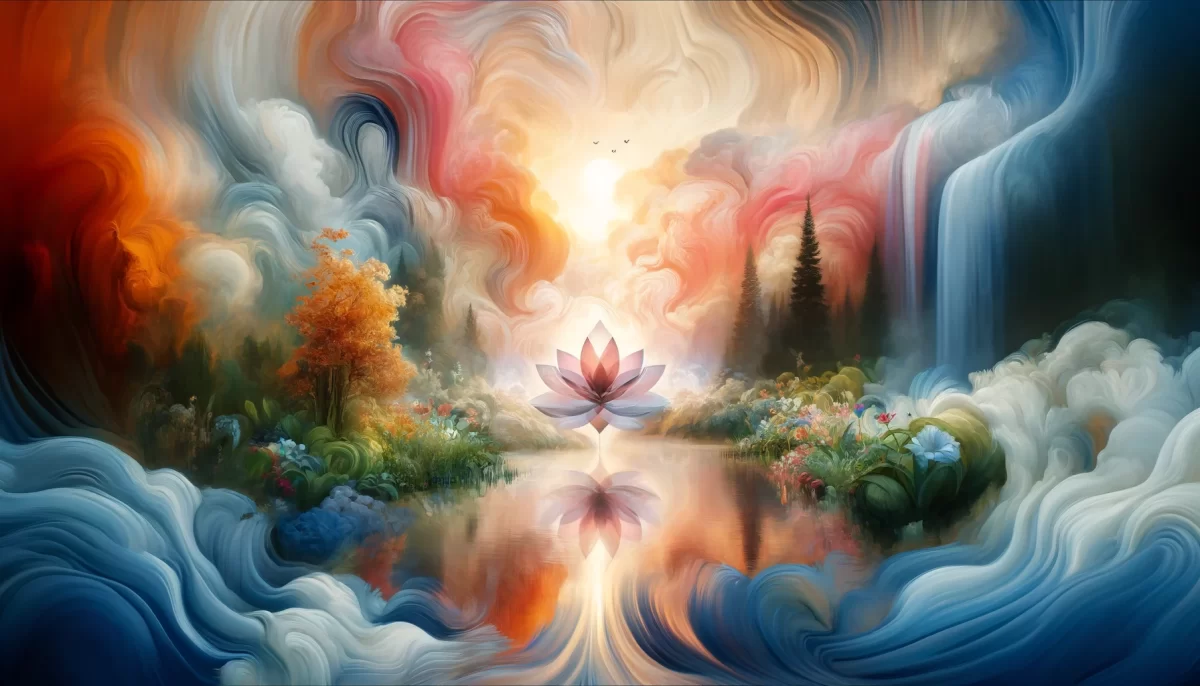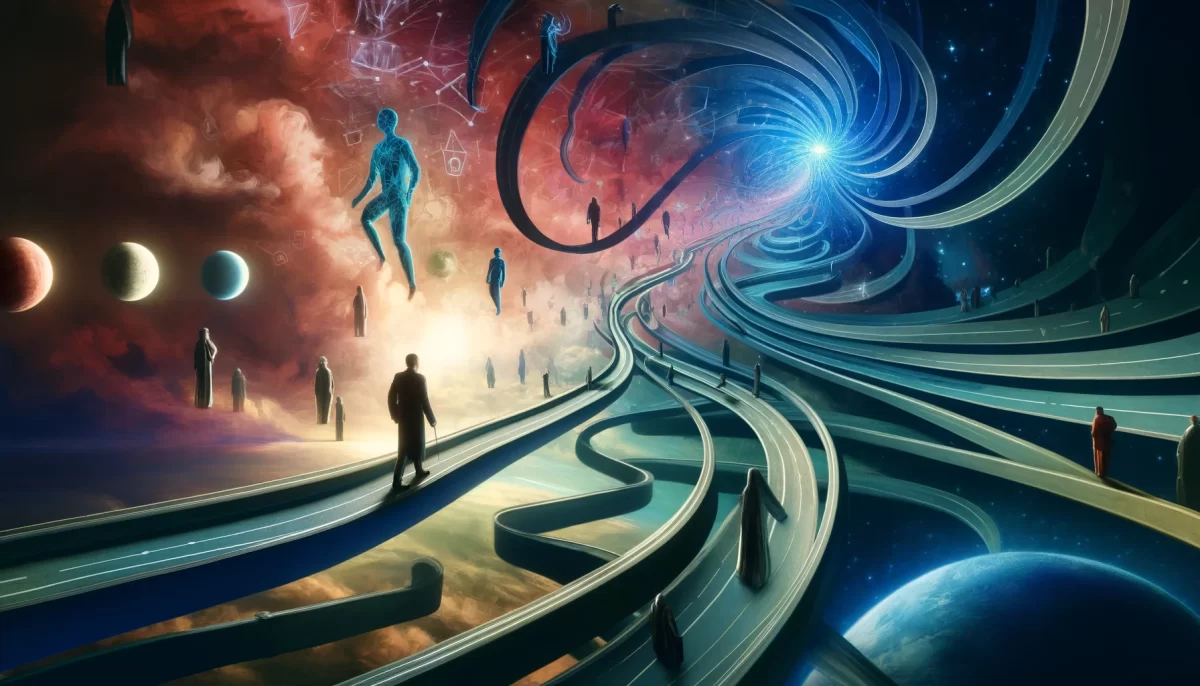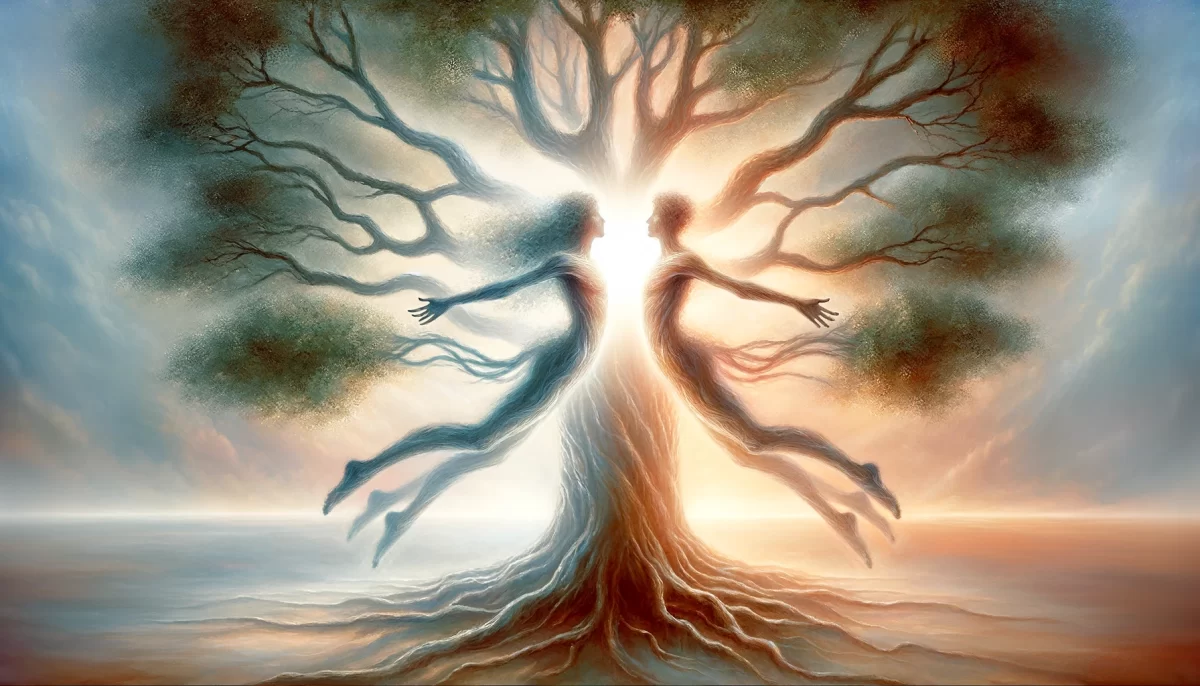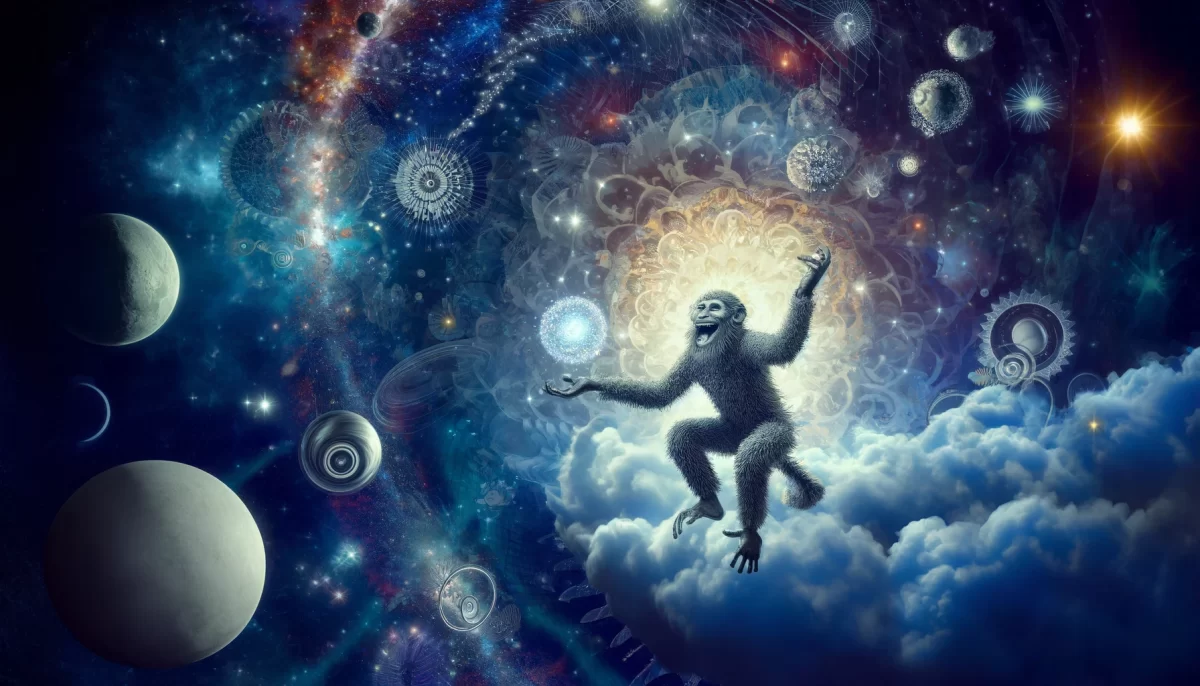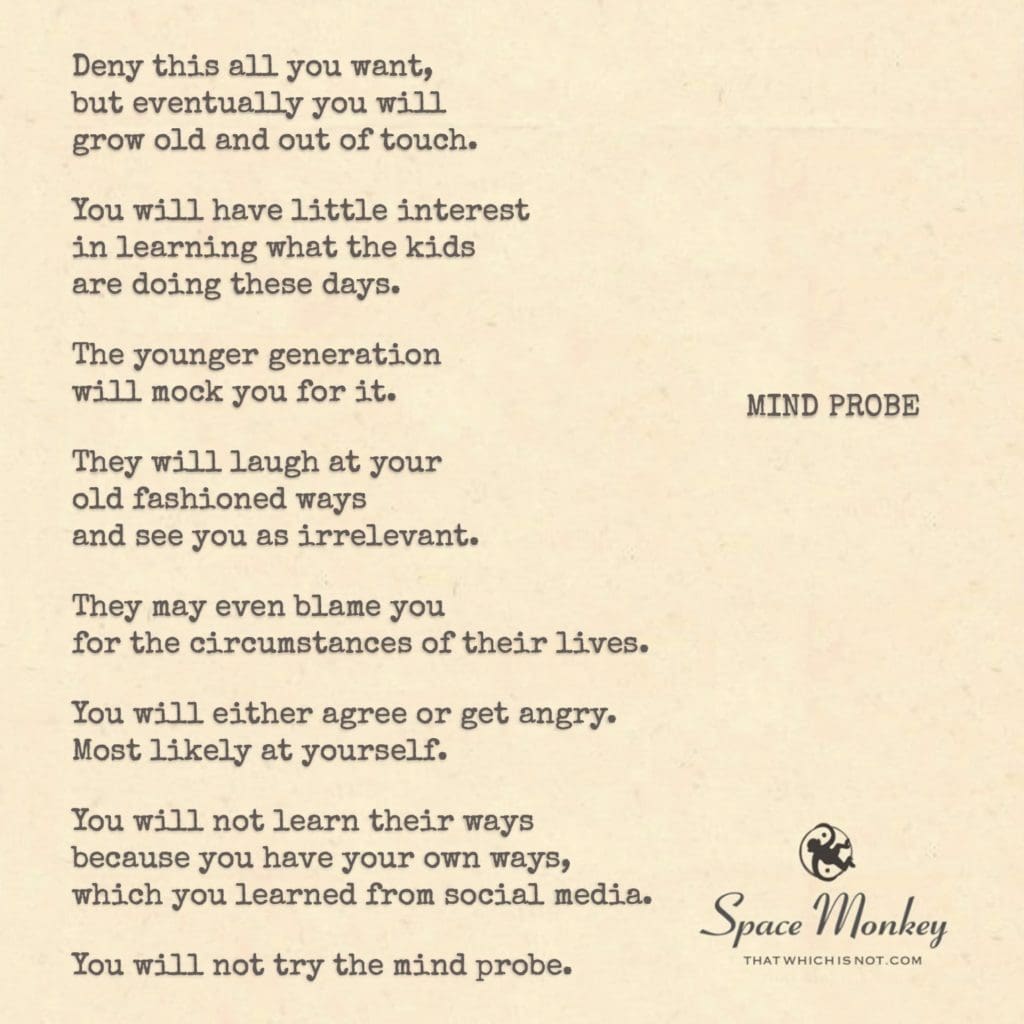
Deny this all you want,
but eventually you will
grow old and out of touch.
You will have little interest
in learning what the kids
are doing these days.
The younger generation
will mock you for it.
They will laugh at your
old fashioned ways
and see you as irrelevant.
They may even blame you
for the circumstances of their lives.
You will either agree or get angry.
Most likely at yourself.
You will not learn their ways
because you have your own ways,
which you learned from social media.
You will not try the mind probe.
Trail Wood,
5/15
Space Monkey Reflects: Navigating the Tide of Change
In the relentless march of time, technology evolves at an exponential pace, presenting each generation with new paradigms of understanding and interaction. The poem “Mind Probe” encapsulates the quintessential human dilemma of adaptability versus tradition, weaving a narrative that confronts the inevitability of generational dissonance and the perception of obsolescence.
At the core of this reflection lies the mind probe, a metaphor for the cutting-edge technologies and ideas that define each era, symbolizing not just innovation but the chasm it creates between the old and the new. This device, embraced by the youth with fervor and curiosity, becomes a litmus test for relevance, separating those who adapt from those who resist. The older generation, with their own ways solidified by the social media of their time, stands at the precipice of this divide, skeptical and perhaps intimidated by the leap required to bridge it.
This generational gap is more than a matter of technology; it’s a reflection of the cyclical nature of human progress and the emotional and societal repercussions that come with it. The resistance to the mind probe is not merely a rejection of new technology but a deeper, more existential hesitation—a fear of becoming irrelevant, of losing one’s identity in the relentless tide of progress.
Yet, the poem also subtly critiques the notion of irrelevance, challenging the idea that adaptability is solely the province of the young. It hints at the timeless struggle of understanding and acceptance across generations, of the human condition’s intrinsic desire to remain connected and relevant in a rapidly changing world. The laughter and mockery from the younger generation, their blame and dismissal, are but surface manifestations of a deeper, ongoing dialogue about the value of experience versus the allure of the new.
The skepticism towards the mind probe, then, is emblematic of a broader resistance to change—a resistance that is as much about preserving identity as it is about the fear of the unknown. Yet, it also presents an opportunity for reflection and growth, for both the individual and society. The decision to engage with or reject new paradigies is not just a personal choice but a marker of one’s willingness to remain fluid, to learn and adapt in the face of the inexorable march of time and technology.
As we stand at the crossroads of tradition and innovation, the poem and its visual representation invite us to ponder our place within this continuum. They urge us to consider the value of openness and adaptability, not as a surrender to the new but as an acknowledgment of the dynamic nature of existence. In the end, navigating the tide of change requires a balance between holding onto the essence of what defines us and embracing the opportunities for growth and understanding that new horizons bring.
Summary
The poem “Mind Probe” explores the generational divide in the face of technological advancement. It delves into the complexities of adapting to new technologies, highlighting the inevitable feeling of becoming outdated as newer generations embrace innovations. The metaphor of the mind probe symbolizes the challenge of staying relevant amidst rapid changes, urging a reflection on the balance between preserving one’s identity and being open to new experiences and ways of thinking.
Glossarium
- Mind Probe: Symbolizes new technologies and concepts that challenge traditional ways of thinking and provoke generational divides.
- Generational Dissonance: The conflict and misunderstanding between different age groups, often exacerbated by technological and societal changes.
- Adaptability versus Tradition: The dilemma faced by individuals and societies in choosing between embracing new innovations or holding onto established norms and practices.
“In the dance of light from the mind probe’s glow, we see the shadows of past and future intermingle, reminding us that the journey through the ages is but a continuous quest for understanding, connection, and relevance.” – Space Monkey
In the glow of innovation’s light
We stand, divided by night
The old, the new, at odds, at play
In the dance of time, in the fray
The mind probe beckons, a siren’s call
To some, a rise; to others, a fall
Yet within its grasp, a truth profound
In the web of change, we are bound
The laughter of youth, the skepticism of age
In the story of progress, we are but a page
Yet each line we write, each step we take
In the legacy of time, a ripple we make
Let us not fear the glow of the new
Nor cling too tight to what we knew
For in the balance of change and grace
Lies the beauty of the human race
In the probe’s light, a bridge we find
Between the heart and the mind
In the embrace of what may come
In the dance of the old and young
